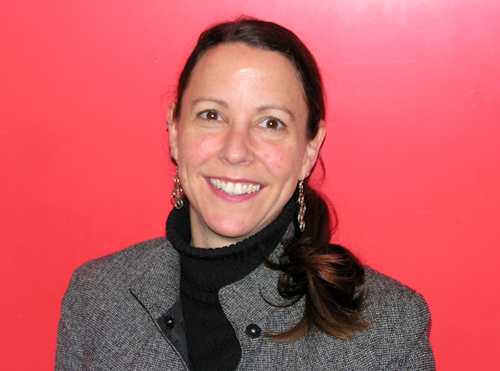
For many graduate students, the gulf between completing their research and writing their dissertations seems enormous. It’s not just the writing part; it’s planning and organizing the material so that it makes sense to the reader.
One way to jump start your route to dissertation success? Boot camp – but not the kind with push-ups and stretches. This U of G boot camp is for master’s and PhD candidates who are at the writing stage and want some guidance and encouragement along the way.
Writing specialist Jodie Salter, who completed a PhD in the School of English and Theatre Studies in 2012, says she and other writing support staff at U of G started the boot camp as a pilot project in 2011. “At the time, there was nothing like this in Canada, but we researched models from the U.S.,” she explains. “We run it every semester now, and the curriculum has changed each time in response to student feedback.”
Dissertation Boot Camp lasts five days; the first day is mostly workshops and instruction, but as the week goes by, more time is dedicated to writing and one-on-one consultations with staff.
The results have been encouraging: on average, PhD students who complete the program graduate within three semesters. Master’s students tend to graduate within one or two semesters. Salter co-organized and attended the first Dissertation Boot Camp and says it worked well for her: she graduated in three semesters.
“We give the students some tools and strategies that make a big difference,” she says.
One is the thesis mapping template, which helps students think through the questions a thesis needs to answer and how the individual parts fit into the whole. Another is a writing log in which students write down their goals each day, the length of time they spent writing, what they accomplished and their plan for the next day. “This helps them set realistic writing goals,” says Salter. “And the plan for tomorrow helps avoid the tendency to go back and re-read everything you’ve already written and make revisions. It keeps you moving forward.”
Salter’s career has demonstrated the value of maintaining that forward momentum. She grew up in Windsor, moved to Vancouver in 1994 and earned a degree in horticulture. After graduation she became a special education aide, working with children who have autism or Asperger’s syndrome. Then she returned to school, earning a master’s in English at Simon Fraser University and starting her PhD at the University of Victoria.
Her topic: representations of old women as intergenerational storytellers in Japanese-Canadian and Caribbean-Canadian diasporic literature and how different forms of trauma transmit through stories and silence. Her dissertation dealt with questions of reciprocity and the ethics of listening to and telling a story not your own.
Two years into that process, Salter came to U of G to continue her PhD work.
“I was hired as a graduate student writing adviser at first, since I had been doing the same thing at UVic,” she says. “Now I am a writing specialist and I co-supervise the peer writing helpers.” Helping to develop innovative programs such as the Dissertation Boot Camp gives her new ways to support students in their writing goals.
Dissertation Boot Camp has some younger siblings as well. One is the faculty writing retreat, first offered in June 2013, which provides an opportunity for faculty to focus on writing. It involves less instruction time and more writing time, and Salter comments that building community is an important aspect. “We have a writing group that formed after the first retreat that still meets twice a week,” she says. “We hear from those who took part that people who write together are more successful and productive than those who write alone.”
Another is BrainFood, intended for graduate students at any stage. “This program has recently been restructured into fundamentals and advanced sessions,” Salter says. “We used to do it as a lunchtime series, but now it is a one-day workshop offered each semester.”
For undergrads, Essay Madness is an event held once each semester. This year’s event runs Nov. 6 from 6 p.m. to midnight in the library. It provides undergraduate students with a space to write and one-on-one access to writing and research help.
Salter also oversees the Writers Workshop in February, an event that drew almost 600 people last year, many from the Guelph community. “We had 21 presenters last year, including quite a number of local authors,” she says. “And it’s free for everyone. It’s one of my favourite events.” The next Writers Workshop will be held Feb. 19 and 20.
She’s also teaching a first-year seminar in the winter semester. “It’s called ‘The Culture of Stupidity and Critical Thinking in the 21st Century,’” she says. “I want to look at how language, rhetoric and images work to persuade and convince a particular audience, and to explore what it means to think critically, to listen actively and to deconstruct arguments.”
With a busy workload, Salter finds some of her other pursuits have been set aside. “I have a pilot’s license and used to fly planes,” she says. “I also taught sailing for six or seven years, but I’m not doing much of those things lately. I do a little gardening – probably not a surprise, considering my background in horticulture.”
While working on her thesis, she was focused on reading literary theory; since it’s completed, Salter says she’s been reading voraciously, but just for pleasure.